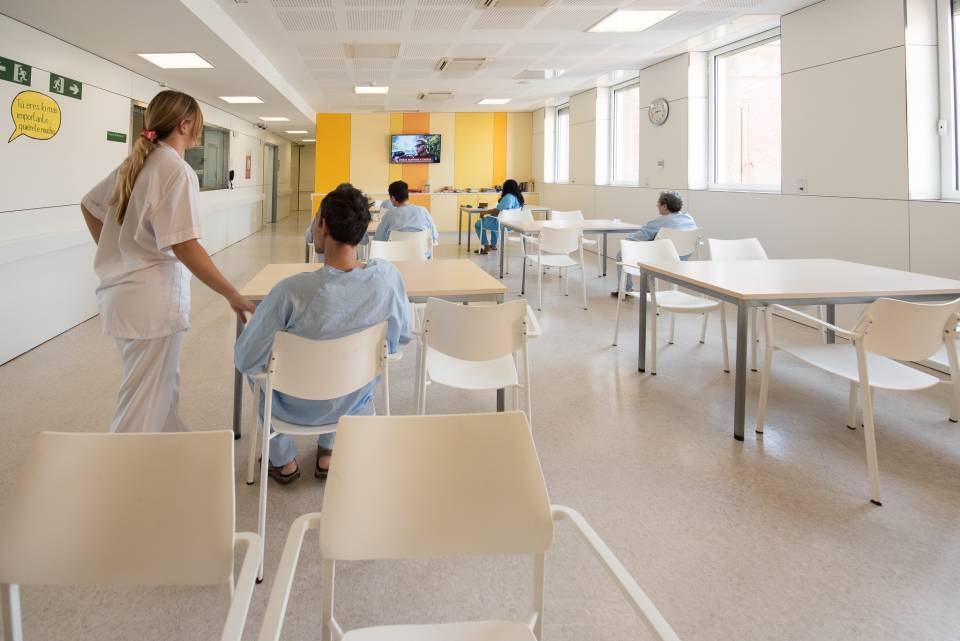Millions of people around the world have been self-isolating at home during this pandemic. Some countries have been stricter than others, but in most places, fairly restrictive new regulations were quickly established. This was certainly the case in Spain’s official state of emergency, which has kept most of the population at home for weeks. Lockdown is a source of stress and anxiety, and can easily lead to decompensation in patients with mental disorders.
And lockdown can be especially difficult for children on the autistic spectrum or with intellectual disabilities, who find changes to their routines very stressful. People with neurodegenerative diseases like Alzheimer’s can also find it difficult to understand the need to stay home. Patients with schizophrenia and serious mental disorders, who have special needs, can also be more vulnerable to relapses. People with addictions, such as alcoholism or online video gaming addiction, can find they get worse. For women and children who are victims of domestic violence, the lockdown situation can be especially dangerous.
To meet all these new mental health needs, psychological and psychiatric care must be intensified, particularly for people who were already presenting disorders. But, at the same time, the risk of catching the COVID-19 virus and the pressure on healthcare assistance in hospitals and medical centres make the necessary in-person visits more difficult. All of this represents a major challenge for psychiatry and psychology, and some experts have suggested measures such as telehealth or home care could be solutions. For example, in an article published recently in the Revista de Psiquiatría y Salud Mental, with the participation of Dr Vieta, of the Hospital Clínic Psychiatry and Psychology Service.
This document first highlights the new needs which will require psychological care in the short term. Most efforts will focus on managing the consequences of lockdown, grief over deaths in isolation, and the impact of the public health crisis on medical professionals.
Over the medium to long term, it predicts rising demand for psychiatric care, as we are already seeing an increase in symptoms of anxiety and depression among the general public, which may continue or get worse over time.
This article, written with experts from other leading-edge Spanish hospitals such as the Hospital del Mar and the Gregorio Marañón, proposes mental health care in the patient’s home as one of the solutions for these new needs. Home healthcare and its more intensive version, home hospitalisation, are playing a key role in avoiding hospital intake for mental disorders, thus reducing the risk of COVID-19 infection for these patients. This ensures good quality care for patients who, for a range of reasons, are not candidates for telehealth care.
Although in some cases this type of care is not possible, the COVID-19 pandemic has shown that in many cases home care can replace admittance to a psychiatric hospital, especially in situations like this one, where many psychiatric wards have had to be converted to COVID-19 wards.
Meanwhile, one of the first measures universally adopted, and also proposed in this article, is a transition to remote care by phone, chat, or video calls. Mental health is undoubtedly the healthcare field which can adapt best to this change, as physical examination is usually less important than in other illnesses. However, patient assessment is more limited, especially if using only audio, with no visual information. Although in-office visits can be expected to resume after the pandemic, this crisis has clearly shown that these remote consultations can replace or supplement them, and that many unnecessary trips could be avoided.
These are just a few of the lessons learned about healthcare since the COVID-19 outbreak. Post-COVID psychiatry will make much greater use of digital resources such as apps to provide mental health services, whether as management tools or to empower the patient. And this epidemic has also highlighted the value of psychiatry as part of medicine, and has once again shown the importance of psychological aspects in medical practice.
Source: Dr Eduard Vieta, Head of Psychology and Psychiatry Service at the Hospital Clínic, Barcelona




